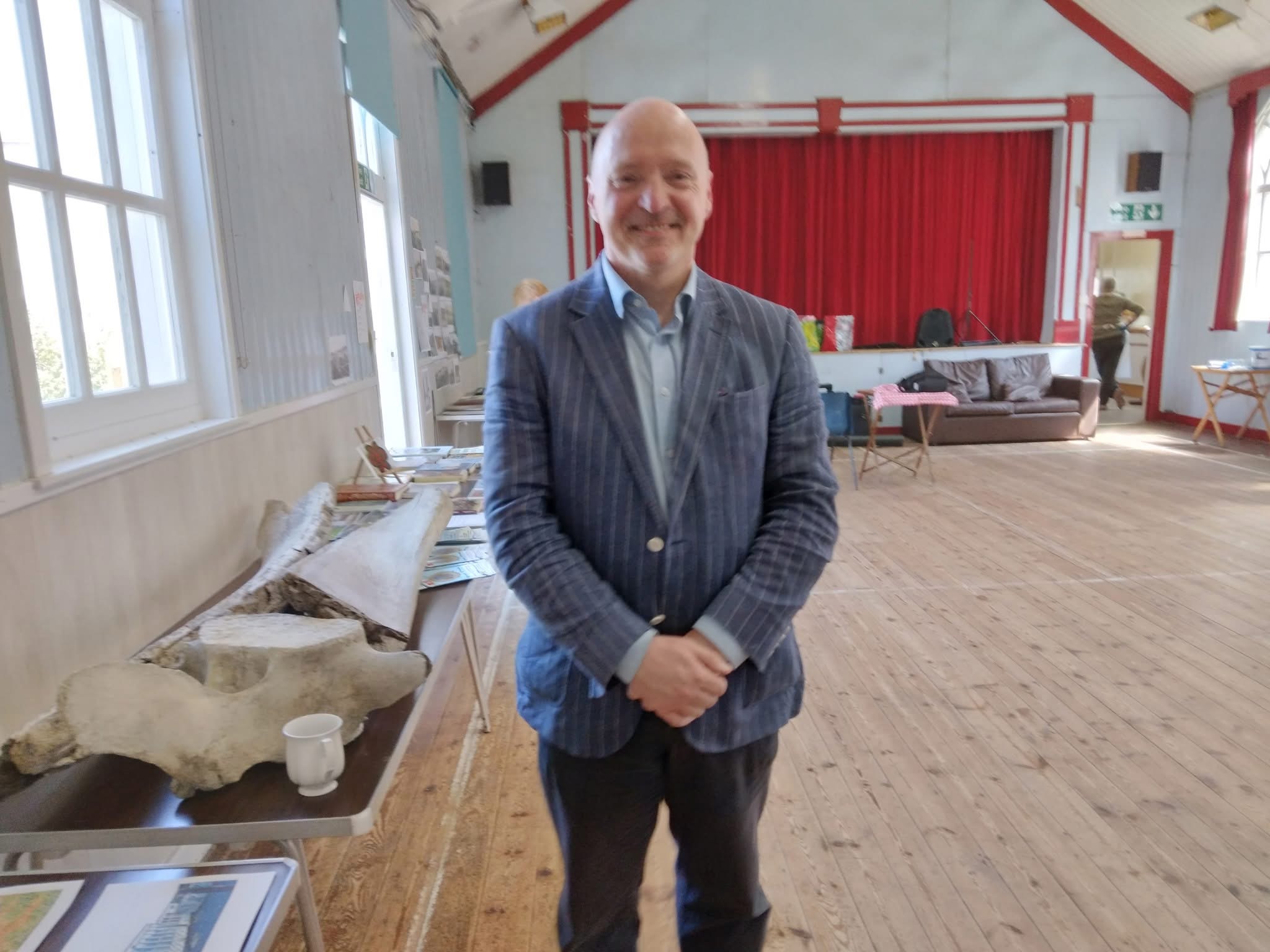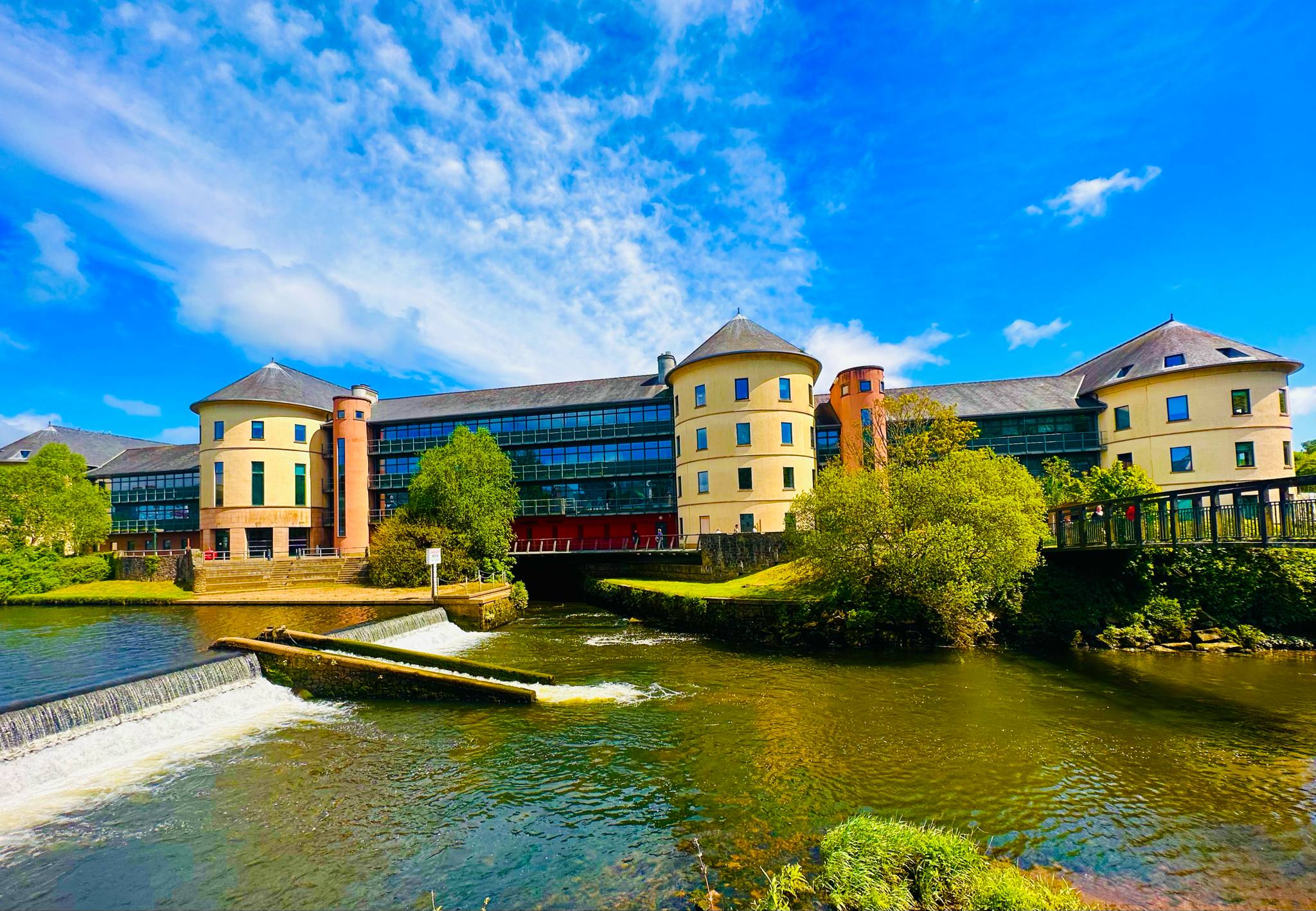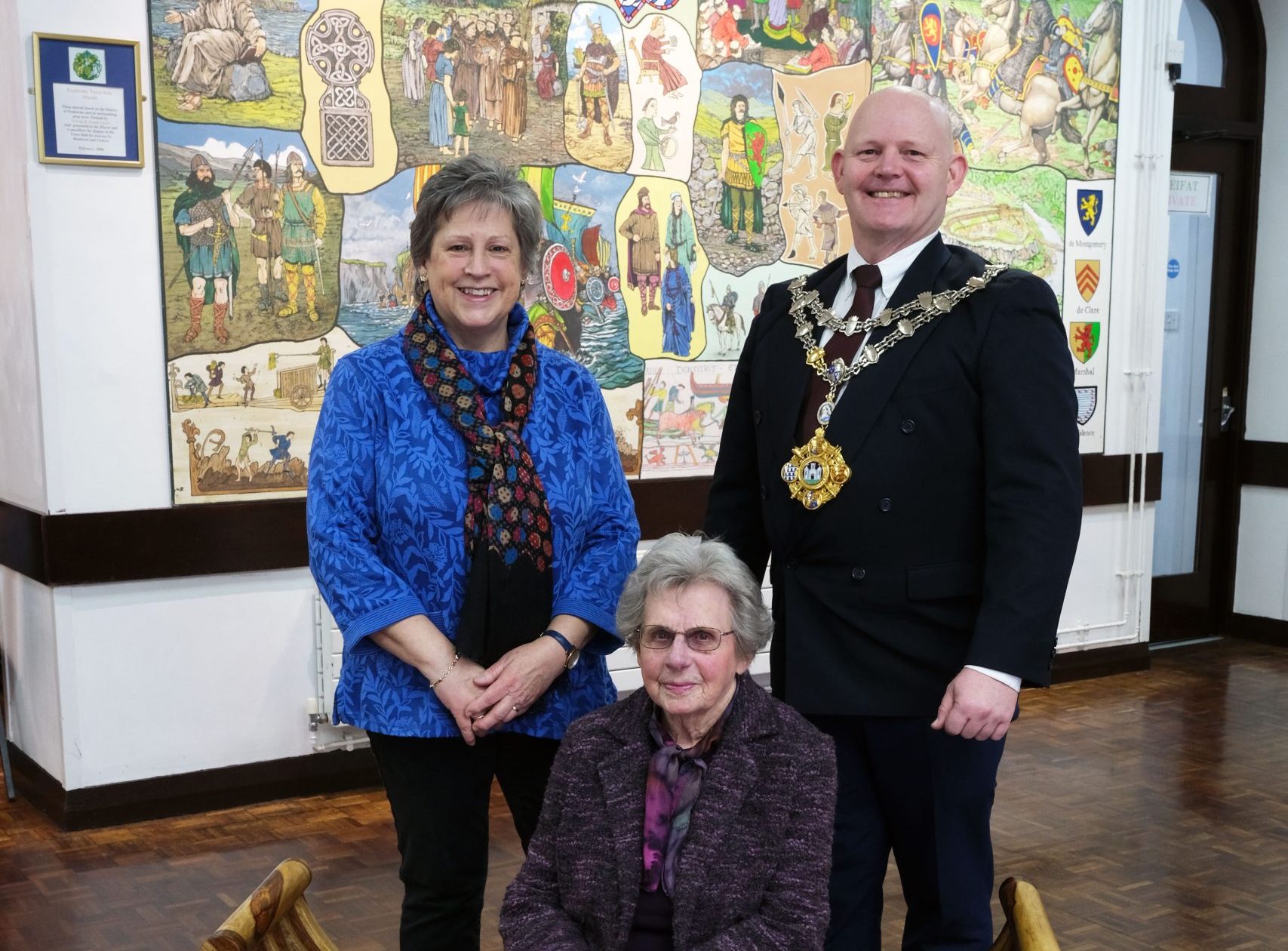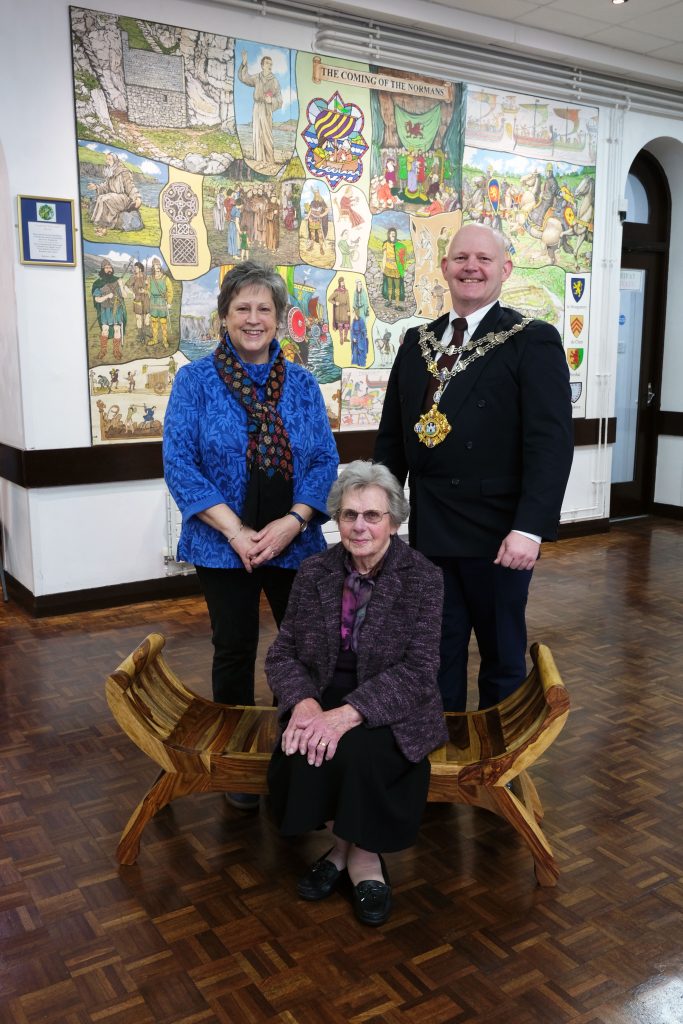Top News
Childhood memory sparked lifetime quest, explains local historian Simon Hancock

Childhood memories – both the good and the bad – can often remain with us for the rest of our lives.
But sometimes those memories can carve an intrinsic bearing on the way in which we evolve as individuals.
Speaking to local historian Dr Simon Hancock, it soon becomes apparent that his immense knowledge and understanding of local history stems back to his childhood, when he was growing up in what was then a very derelict and forgotten Neyland.
“In the 1970’s, Neyland was a very depressed town,” Simon told The Pembrokeshire Herald.
“The railway had closed in 1964, the year before I was born, and when I was ten, the ferry to Hobbs Point had closed following the arrival of the Cleddau Bridge.
“As a result of what had happened, the area where the marina stands today was sheer desolation.
“I remember walking along there as a child and coming across an isolated railway carriage that had been left close to where the railway station used to be. And that image intrigued me.
“I also remember talking to very old people – Neyland residents who had lived in the town during the Victorian era – and I found their stories and recollections of how the town had once thrived fascinating.
“I have absolutely no doubt that this is what has inspired me as a historian to continue finding out as much as I can about local history.”
This week Simon will be presenting a talk on Neyland’s difficult progression through the Edwardian era, extending from 1900 until the First World War.
“Step back just 50 years from then, and Neyland was in its golden era,” continues Simon. “The railway, which opened in April 1856, was the catalyst for the town’s economic growth, while in August of the same year, the Irish steam ferries started sailing from Neyland to Waterford, followed by sailings to Cork.”
As a result, Neyland continued sailing through the Victorian years as a highly prosperous boom town, linking in neatly with its earlier standing as a salt refinery, a large herring fishery and a private shipyard. The town’s growth is testified by the census figures; in 1830 Neyland had around 200 inhabitants, however by 1901 that figure had soared to 2,827.
The peak lasted for 50 years but then, following the opening of a new ferry port in Fishguard in 1906, Neyland’s confidence took a major tumble.
“People were saying that grass would begin growing up in the streets and there was a real crash in public confidence. But instead of just sitting back and watching the economic decline, the community, together with landowners such as Sir Charles Phillips of Picton Castle, set up the Neyland steam trawling company.”
Land was leased from GWR and a fish market was set up together with a purpose-built ice factory that opened in Barn Lake in 1908.
“Obviously this was never going to compete with Milford Haven, but it was an expression of confidence in the economic fortunes of the town.
“And the High Street and Kensington Road bore testimony to this, with over 60 shops serving the town of Neyland and the much wider outlying community. And this continued right up until the arrival of the supermarkets.”
In 1906, following the loss of the Irish ferries, the town’s population had decreased to 2,423 but 15 years later, that figures had soared to 2,700. So once again, the people of Neyland had an underlying belief and a staunch commitment to their town’s continued prosperity.
“There’s no doubt that what Neyland has witnessed over the centuries is truly outstanding,” said Simon.
“And now, thanks to the way in which history is becoming so much more accessible to everyone, people are eager to find out as much as they can about the history of their own towns and villages.
“I’ve been giving lectures since the 1990s and it’s just so wonderful to be able to communicate to people, in a myriad of different ways, and help them discover the wealth of history that took place in their own towns.
“Schools are now teaching history in a much more holistic way, tv programmes such as ‘Time Team’ and ‘Dig for Britain’ have helped capture people’s interest and then of course, we have all the history sites on social media.
“It’s wonderful that history has become such an accessible topic to everyone.”
Dr Simon Hancock’s talk will include 80 photographic images of Edwardian Neyland. The talk takes place at St Clements Church Hall, Neyland, this Friday, March 7, at 7.30 pm. Entry is £4, which includes refreshments, and all proceeds will be donated to Pembrokeshire Mind. The event is sponsored by Audrey Johns Ltd, Neyland.
Health
Nurses warn of pay and burnout crisis as new report exposes pressures in Wales

A NEW national report has laid bare the growing pressures facing nurses and midwives in Wales, with concerns over pay, burnout and lack of professional development threatening the long-term future of the workforce.
The findings, published by the Nursing and Midwifery Council in its Spotlight on Nursing and Midwifery 2025 report, show that while many nurses remain deeply committed to their roles, large numbers feel undervalued, overstretched and reluctant to recommend the profession to others.
Responding to the report, Royal College of Nursing Wales said the data should act as a wake-up call for government and health boards.
Professor Sandy Harding, Associate Director of Nursing, Policy and Professional Development at RCN Wales, said:
“We welcome the determination and commitment shown by our existing nurses in Wales, with more than half surveyed saying they are satisfied with their day-to-day work and motivated by making a difference to people’s lives. However, the findings also present a stark reflection of the poor health of nursing in Wales.
“Too many nurses are not recommending the profession to others, are struggling and are facing abuse and discrimination in the workplace.”
Pay falling behind responsibility
One of the most pressing concerns raised in the report is pay.
Nursing leaders say salaries have failed to keep pace with the growing complexity of the job, heavier caseloads and the rising cost of living, leaving many staff feeling undervalued and financially squeezed.
For some, the pressure is forcing difficult decisions about staying in the profession or reducing hours.
RCN Wales argues that without meaningful improvements to pay, recruitment and retention will continue to suffer, placing further strain on already stretched hospital wards, community services and care settings.
Training and career progression gaps
The report also highlights inconsistent access to continuing professional development, with many nurses struggling to secure protected time or funding for further training.
According to the union, this not only limits career progression but risks undermining patient care in the long term.
Harding said: “Access to protected time and funding for continuing professional development remains inconsistent, undermining both career progression and the sustainability of the workforce.
“RCN Wales believes this is unacceptable and we will continue to support nurses and fight for fair pay, meaningful investment in professional development and better working conditions across Wales.”
Commitment remains strong
Despite the challenges, the report does note strong dedication among nursing staff.
More than half of those surveyed said they were satisfied with their day-to-day work and remained motivated by the difference they make to patients’ lives.
Health leaders say that commitment is a strength the NHS in Wales cannot afford to lose.
With around 35,000 members in Wales, the Royal College of Nursing says it will continue pressing ministers to address what it describes as a “workforce crisis” before it deepens further.
The union is calling for fairer pay settlements, safer staffing levels and guaranteed investment in training to ensure nursing remains an attractive and sustainable career.
Local Government
Pension fund divestment debate set for March 5

Gaza-linked petition to be discussed by councillors with no officer report planned
A PETITION calling for Pembrokeshire’s public sector pension fund to divest from companies linked to Israel will be debated by councillors next month.
The proposal has been scheduled for discussion at a meeting of Pembrokeshire County Council’s Full Council on Wednesday (Mar 5).
More than 500 people signed the e-petition, triggering a formal debate under the council’s petitions scheme.
Campaigners are asking the authority to press the Dyfed Pension Fund to withdraw investments from firms alleged to be “complicit with Israel’s genocide of Gaza”, arguing that public money should not be invested in businesses connected to conflict or alleged human rights abuses.
However, critics say foreign policy matters fall outside local government’s remit and warn that divestment could reduce investment flexibility or affect long-term returns for pension holders.
Sharon Ross, a freelance writer who contacted The Herald ahead of the debate, said councils should prioritise local services.
She said: “Local issues where councillors can make a real difference – roads, schools and healthcare – risk being pushed aside for international politics.
“Excluding an entire country from investment portfolios could reduce diversification and potentially lower returns without achieving meaningful change overseas.”
Council pension schemes operate under fiduciary duties requiring investments to act in the best financial interests of members.
The council has confirmed the item will go directly to Full Council for debate and that no officer report will accompany the discussion.
Agendas are expected to be published on the council’s website in the week before the meeting.
Community
Murals legacy honoured at Town Hall

Artist Jeanne Lewis recognised as Pembroke celebrates 20 years of historic artwork
MRS JEANNE LEWIS and her daughter were guests of honour at a special presentation at Pembroke Town Hall on Tuesday to mark the 20th anniversary of the historic murals installed inside the building.
Two handcrafted benches, gifted by Pembroke Town Council, were presented in appreciation of the artwork created by Jeanne and her late husband, George Lewis, whose striking panels have become a defining feature of the Hall over the past two decades.
The murals, which vividly depict scenes from Pembroke’s past, have long drawn praise from residents and visitors alike for their scale, colour and intricate storytelling.
The Mayor of Pembroke, Gareth Jones, joined councillors and volunteers from Pembroke Museum to present Mrs Lewis with a Certificate of Appreciation and a bouquet of flowers in recognition of the couple’s lasting artistic legacy.
Councillor Jones said the town was “extremely fortunate and deeply privileged” to house the collection.

He added: “People often walk into the Town Hall and simply stop to look. The detail and the history captured in these murals are remarkable. They give visitors a real sense of Pembroke’s story and reflect the dedication and talent Jeanne and George brought to the project.”
Twenty years on, the artwork continues to enrich the civic building, ensuring the Lewis family’s contribution remains at the heart of the town’s heritage.
Photo caption: Jeanne Lewis receives a certificate from Mayor Gareth Jones at Pembroke Town Hall, marking 20 years since the installation of the town’s historic murals (Pic: Martin Cavaney/Herald).
-

 Health6 days ago
Health6 days agoConsultation reveals lack of public trust in health board
-

 Community7 days ago
Community7 days agoPembrokeshire students speak at national Holocaust Memorial Day event
-

 News1 day ago
News1 day agoPrincess of Wales visits historic Pembrokeshire woollen mill
-

 Crime5 days ago
Crime5 days agoPembroke man accused of child sex offences sent to Swansea Crown Court
-

 Education7 days ago
Education7 days ago‘Vulnerable teen’ questioned by police at Milford Haven School
-

 Education7 days ago
Education7 days agoAttendance concerns at Milford School reflect wider issue raised at the Senedd
-

 Community6 days ago
Community6 days agoCampaign to ‘save’ River Cleddau hits over 2,200 signatures
-

 Health3 days ago
Health3 days agoDoctor struck off after sexual misconduct findings at Withybush Hospital


























